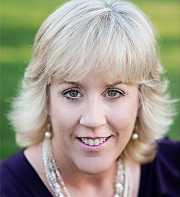Substance abuse can wreak havoc on a marriage. Has it brought yours to the brink of total collapse?
Have you given up trying to figure out how to help your spouse break free from substance abuse? Is your life so chaotic that you’ve contemplated divorce? Are you sure you’re willing to go through with that?
How can you find the strength to take action? And what actions would be best?
Shifting Your Focus
First, you must realize that your spouse’s substance abuse is not your problem. It’s not your job to cure your mate, nor should you feel obligated to shield them from the consequences of their addiction. So, instead of focusing on why they’ve become addicted, and all the trouble this has caused in your relationship, direct your attention to helping yourself.
Consider the role you might be playing. Ask yourself: Am I blaming every problem in my marriage on my spouse’s substance abuse? Could I be in denial of my own issues? Do I have a leaning toward codependency? Have I actually become an enabler?
Be assured, you can help your spouse to overcome their addiction. But it’s only when you start taking steps to overcome your own negative patterns that you will be able to help your marriage and, in turn, your mate.
Opening the Door to Recovery
Educate yourself – Addiction is a disease, and it’s almost impossible to help someone sick – let alone someone enslaved by substance abuse – if you don’t understand the issue you’re facing. To assist in the fight, and successfully help your mate, you must first arm yourself with knowledge. Learn as much as possible about this disease, including what your own role has been in enabling their addiction.
Acknowledge your feelings – Watching your spouse be consumed by this disease can be painful and heartbreaking. Yet, when their behavior robs you of their love and support, it can also leave you feeling angry, even resentful. Assure yourself that you’re not a bad person for hating their substance abuse. Show your mate as much respect and dignity as possible, and remember that it does not mean that you approve of their actions.
Seek support – Don’t be ashamed to talk with someone about your spouse’s substance abuse problem. Keeping the issue a secret only continues to enable the disease. To help lift the load, share your feelings with people you trust, like family and friends. In addition, try talking to members of a support group that truly understand your struggle and encourage positive growth.
Don’t isolate yourself! Spend time with people that are emotionally healthy and positive, that provide nurturing and breaks from the stress, and that leave you feeling good about yourself. This will help you keep sight of what is normal, especially when things become chaotic at home.
Set boundaries – You must learn to draw the line between being supportive and enabling your mate’s substance abuse. Consequently, stop making excuses for the abusive, harmful, or dangerous behavior of your spouse. Only when you put a stop to that can you help your mate rebuild. To do this, you must set and keep healthy boundaries.
First, work on building your inner strength – the willpower to do whatever it takes – through affirmation, meditation, visualization, and even prayer. Then, follow through with sticking to the limits you’ve set. Once your spouse realizes that you’re no longer a partner in their addiction, they either have to accept help or continue alone. Hopefully, they will choose the path to recovery!
Most of all, it takes time, patience, and great strength to combat substance abuse. However, your marriage can actually emerge from it stronger. Surviving a battle like this can forge a deeper and more profound bond between you than you could ever imagine.
Nancy Ryan, LMFT
Nancy Ryan, LMFT specializes in working with individuals and couples who want deep, satisfying relationships with themselves and their partners. She works with couples who are ready to stop the destructive patterns and want to build the love, friendship and romance back into their partnership.
For more information on couples counseling


